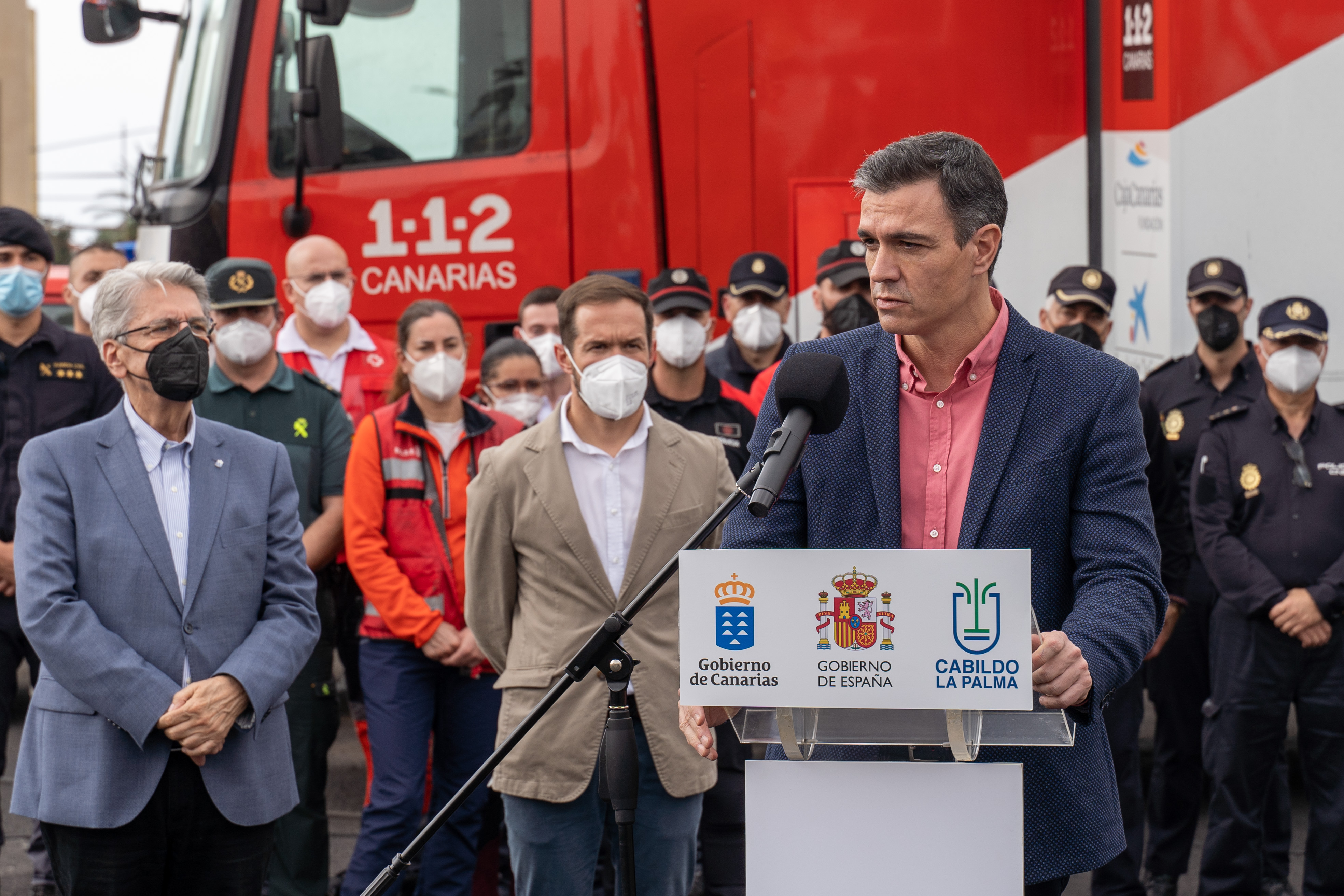Coronavirus incidence sees largest increase of the pandemic so far, with 215,000 new infections reported since Thursday
The sixth wave of the health crisis, which is being fueled by the spread of the omicron variant, saw more than 500 hospital admissions a day over the Christmas weekend

The sixth wave of the coronavirus pandemic in Spain has overwhelmed all of the indicators over the Christmas weekend, with a never-before-seen rise in the incidence so far during the health crisis, as well as a sharp increase in the number of hospitalizations and admissions of Covid-19 patients in the country’s intensive care units (ICUs).
The latest data from the central Health Ministry, which was released last night and covers information registered between Friday and 7pm on Monday, shows a rise in the 14-day incidence of nearly 300 points, from 911 cases per 100,000 inhabitants to 1,206. In absolute terms, this is an increase of nearly 215,000 infections, an unprecedented spike since the pandemic began back in March 2020. In fact, this is the first time this indicator has exceeded the 1,000-point barrier since that month.
Navarre is the region with the highest number of new infections, at 2,440 cases per 100,000 inhabitants over 14 days. This means that one in every 43 residents of the northern territory has had a positive diagnosis over the last two weeks. Next is La Rioja (2,145), the Basque Country (1,921) and the Madrid region (1,769).
In the last three days, hospitalizations have risen by 1,606 patients to a total of 9,530. This figure remains a relatively small percentage of total beds, 7.7%, but the increase is sharp and with more than 500 new patients a day the theory that the highly contagious nature of the omicron variant is compensated by being less virulent loses force. ICU admissions went up by 200 patients since Thursday, to a total of 1,715 occupied beds. Over the three days covered by the report, 120 deaths were reported after a confirmed coronavirus test. There have been a total of 5,932,626 confirmed infections, while the death toll stands at 89,139.
The positivity rate – i.e. the percentage of tests coming back positive – has also jumped, to 17.94%, which is a 3.3-point rise compared to the latest data published by the Health Ministry on Thursday (No report was published on Friday given it was Christmas Eve).
This sharp rise in cases took place during Christmas weekend, during which there were celebrations on Christmas Eve on Friday, a national holiday on Saturday and in some highly populated regions such as Catalonia, San Esteban was also observed on Sunday. In previous moments of the pandemic, such holidays mean that the data are likely to have been underreported due to fewer diagnostic tests being carried out. Part of these undetected positives are likely to be accounted for during this current week.
The exponential growth of infections has once again raised the issue of tougher restrictions for the hospitality sector and nightlife. Aragón and Navarre, for example, announced on Monday that they would be bringing forward the closure of bars, restaurants and nightclubs until after New Year’s Eve. Galicia, the Basque Country and La Rioja are studying similar measures, while other regional governments are resisting such actions. Andalusia is citing economic reasons for not taking further action, and the only measure in Madrid so far is to cancel five major New Year parties.
New Year on hold
Currently in Spain, the regions are responsible for implementing such restrictions, as well as being in charge of their healthcare systems and vaccination drives. The situation is prompting local councils to have to decide which events to allow to go ahead. In Andalusia, for example, there will be no New Year celebrations in Malaga nor in Granada, and in the latter the controversial Toma fiesta on January 2 will also be restricted.
In Badajoz, Extremadura region, there will be no New Year celebrations in one of its main squares, and in Cáceres, the end-of-year fun run, the Carrera de San Silvestre, has also been canceled. For the second year in a row, the New Year celebrations have been canceled in Valencia’s Ayuntamiento square, as in Palma de Mallorca.
Meanwhile, celebrations will be going ahead in places such as Santiago de Compostela (Galicia), which has programmed an event with a live orchestra for 2,500 people. Valladolid (Castilla y León), is not canceling its events despite having an incidence of 2,500 cases per 100,000 inhabitants, as is Seville (Andalusia) and Bilbao (Basque Country). Madrid is planning on letting celebrations go ahead in the central Puerta del Sol square, but with a limit of 7,000 people, which is 60% of the number in 2019. The capital is the only city of Spain’s 10 most populated to keep such plans in place.
PM predicts infections will continue to spike

The Spanish prime minister, Pedro Sánchez, spoke about the situation of the pandemic on Monday during a visit to La Palma, where a three-month volcanic eruption was officially declared over on Christmas Day.
“Thanks to science, nine out of every 10 Spaniards are fully vaccinated and protected against the most serious causes of Covid,” he said to reporters, in reference to the country’s ongoing vaccination campaign. “This represents the success of universal access to the vaccine.”
The Socialist Party (PSOE) leader went on to predict that in the coming weeks, infections would continue to spike. “It’s true that we are taking a stand against the omicron strain, which the science tells us is highly contagious, but also that the impact it is having on health is lower,” he continued. “We can see this in hospitalizations and ICU admissions, and I want to convey that in the coming weeks we will see very high infection rates, but not so for hospitalizations. We have to persevere with three issues: we have to continue to vaccinate, which is the best antidote to protect us from infections; and secondly personal protection and masks; and thirdly, institutional unity, with the transfer of economic resources and a greater input of human resources from the Defense Ministry and the habilitation of healthcare professionals from non-EU countries or from among the retired.”
After a meeting last week between the central government and the regions, few new measures were announced by Sánchez to control the spread of the virus. The most controversial was a return to obligatory mask use when outdoors, the effectiveness of which has been widely questioned by experts.
Tu suscripción se está usando en otro dispositivo
¿Quieres añadir otro usuario a tu suscripción?
Si continúas leyendo en este dispositivo, no se podrá leer en el otro.
FlechaTu suscripción se está usando en otro dispositivo y solo puedes acceder a EL PAÍS desde un dispositivo a la vez.
Si quieres compartir tu cuenta, cambia tu suscripción a la modalidad Premium, así podrás añadir otro usuario. Cada uno accederá con su propia cuenta de email, lo que os permitirá personalizar vuestra experiencia en EL PAÍS.
¿Tienes una suscripción de empresa? Accede aquí para contratar más cuentas.
En el caso de no saber quién está usando tu cuenta, te recomendamos cambiar tu contraseña aquí.
Si decides continuar compartiendo tu cuenta, este mensaje se mostrará en tu dispositivo y en el de la otra persona que está usando tu cuenta de forma indefinida, afectando a tu experiencia de lectura. Puedes consultar aquí los términos y condiciones de la suscripción digital.









































